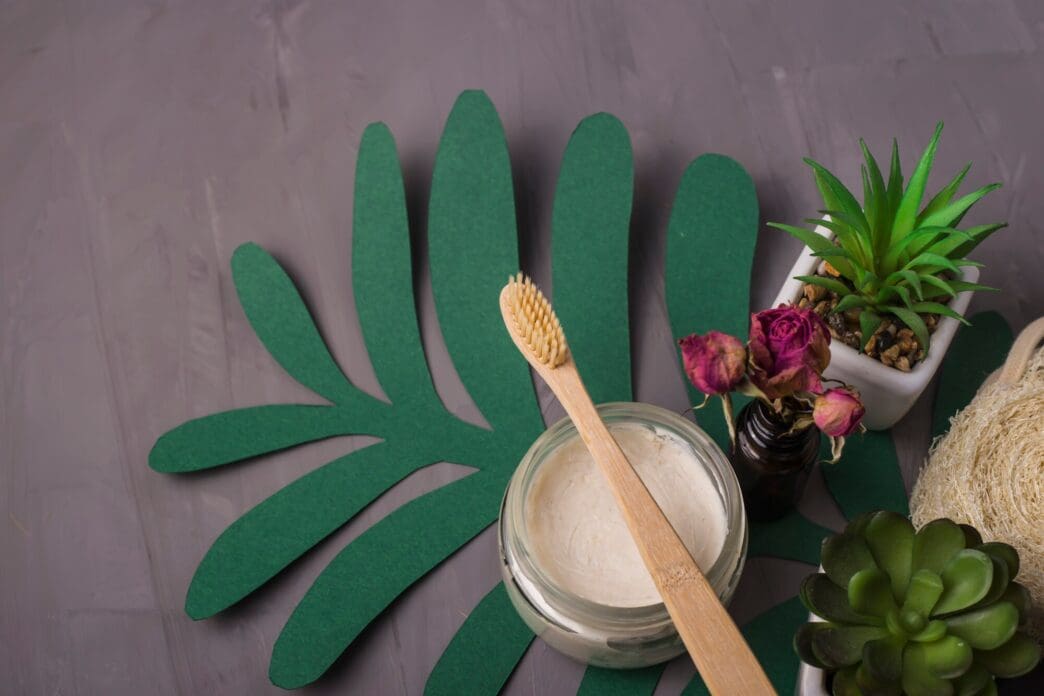A Quick Takeaway
The Story Behind the Trend
How to Make It Work for You
The Community View
Embracing non-toxic toothpaste and mouthwash is a significant step toward achieving a healthier smile and supporting overall wellness, moving beyond merely addressing oral hygiene to fostering a truly healthy oral microbiome. This shift involves consciously choosing oral care products formulated without harsh chemicals, artificial additives, and potentially irritating ingredients commonly found in conventional options. For anyone seeking to minimize their exposure to synthetic substances and promote a more natural approach to daily self-care, incorporating these products into your routine is a simple yet impactful change that can lead to reduced sensitivity, fresher breath, and a more balanced oral environment, starting today and continuing for a lifetime of better health.
Why Opt for Non-Toxic Oral Care?
Many conventional oral care products contain ingredients that, while approved for use, can cause irritation, allergic reactions, or raise concerns about long-term health effects. Ingredients like sodium lauryl sulfate (SLS), artificial sweeteners, synthetic dyes, parabens, and alcohol are frequently found in mainstream toothpastes and mouthwashes. Understanding the potential impact of these additives empowers consumers to make more informed choices for their daily routines.
For instance, SLS, a common foaming agent, can contribute to canker sores and oral irritation in sensitive individuals. Alcohol in mouthwash, while providing an initial germ-killing sensation, can lead to dry mouth by reducing saliva production, which paradoxically increases the risk of bad breath and cavities. Making the switch to non-toxic alternatives helps to mitigate these potential issues, promoting a more harmonious oral ecosystem.
Key Ingredients to Avoid in Toothpaste and Mouthwash
When selecting your oral care products, becoming a label detective is crucial. Certain ingredients are frequently highlighted by wellness experts as ones to consider avoiding due to potential irritation or health concerns.
Common Irritants and Additives
- Sodium Lauryl Sulfate (SLS): This surfactant creates foam but can strip the mouth’s delicate lining, leading to sensitivity or recurring canker sores for some individuals.
- Artificial Sweeteners (Saccharin, Aspartame, Sucralose): These synthetic sweeteners are used for taste without contributing to cavities, but some people prefer to avoid them due to general health concerns.
- Artificial Dyes (Blue 1, Yellow 5): Added purely for aesthetic appeal, these dyes offer no functional benefit and can be linked to allergic reactions or hyperactivity in sensitive individuals.
- Parabens (Methylparaben, Propylparaben): Used as preservatives, parabens are often avoided due to their classification as potential endocrine disruptors.
- Triclosan: An antibacterial agent once common in toothpaste, triclosan has faced scrutiny over concerns about antibiotic resistance and its impact on the environment.
- Alcohol (in Mouthwash): While it kills bacteria, alcohol can dry out oral tissues, disrupt the natural microbiome, and may contribute to bad breath in the long run.
- Propylene Glycol: A humectant and solvent, it can be a skin and mucosal irritant for some, and is often avoided in natural products.
- Microbeads: Tiny plastic particles once used as abrasives, these are harmful environmental pollutants and should be completely avoided.
Beneficial Ingredients to Seek Out
Fortunately, many effective and natural ingredients can support excellent oral health without the drawbacks of synthetic additives. Focusing on these components can lead to a truly non-toxic and beneficial oral care routine.
For Toothpaste
- Xylitol: A natural sugar alcohol, xylitol effectively inhibits the growth of cavity-causing bacteria and can help remineralize tooth enamel.
- Nano-hydroxyapatite or Calcium Carbonate: These minerals are excellent for gentle cleaning and remineralization, helping to strengthen enamel and reduce sensitivity.
- Baking Soda: A mild abrasive, baking soda helps neutralize acids in the mouth, gently whiten teeth, and remove plaque.
- Natural Flavors (Peppermint, Spearmint, Tea Tree Oil): Derived from essential oils, these provide fresh breath and often possess natural antimicrobial properties.
- Aloe Vera: Known for its soothing properties, aloe vera can help reduce gum inflammation and irritation.
- Stevia: A natural, plant-derived sweetener that provides taste without contributing to cavities.
- Essential Oils: Ingredients like tea tree oil, clove oil, and myrrh can offer natural antimicrobial and anti-inflammatory benefits.
For Mouthwash
- Xylitol: Similar to toothpaste, xylitol in mouthwash helps fight cavity-causing bacteria and promotes a balanced oral environment.
- Essential Oils (Peppermint, Spearmint, Tea Tree Oil): These provide natural antiseptic properties and refreshing flavor without drying out the mouth.
- Aloe Vera: A soothing addition that can help calm irritated gums and promote healing.
- Saline Solution: A simple, effective, and gentle rinse that helps cleanse the mouth without harsh chemicals.
- Hydrogen Peroxide (Diluted): When used in low concentrations, it can act as a mild antiseptic and whitener, though it should not be used daily long-term without professional guidance.
Transitioning to a Non-Toxic Routine
Making the switch to non-toxic oral care products is straightforward. Start by reading labels carefully, looking for certifications or brands known for their commitment to natural ingredients. You might notice differences in texture or foaming action compared to conventional products, which is normal as they lack synthetic thickeners and foaming agents.
Give your mouth time to adjust, as it may take a few days or weeks for your oral microbiome to rebalance. If you have specific dental concerns or sensitivities, consulting with your dentist or a holistic health practitioner can provide personalized guidance on the best non-toxic options for your individual needs.
Beyond Products: A Holistic Approach to Oral Health
While choosing non-toxic products is vital, it’s just one piece of the puzzle for optimal oral health. A truly holistic approach integrates good daily habits with mindful product choices. Ensure you’re brushing thoroughly for two minutes twice a day, flossing daily, and incorporating tongue scraping to remove bacteria.
Diet also plays a crucial role; limiting sugary and processed foods helps prevent plaque buildup and acidity. Staying well-hydrated supports saliva production, which is a natural defense against bacteria. Regular dental check-ups and cleanings remain indispensable for monitoring your oral health and addressing any issues proactively, ensuring your radiant smile reflects your commitment to overall well-being.







